It’s a welcome return for the Glenfinnan Highland Gathering and Games tomorrow after the pandemic stopped play for a couple of years.
The historic Gathering is inextricably linked to the moment Prince Charles Edward Stuart set foot on Scottish soil to raise the Jacobite standard.
He arrived at Glenfinnan from the continent on August 19, 1745, hence the date of the Gathering traditionally being set for the closest Saturday to that date.
The spot is also marked by the famous Jacobite memorial, heavily visited by tourists these days as they flock to the village to witness the famous ‘Harry Potter train’ crossing the Glenfinnan viaduct.
The pandemic stopped 275th anniversary commemorations mooted for 2020, but in 1945, the bicentenary of the ‘45 was celebrated with a gathering of the clans at Glenfinnan.
The Tatler covered the event which swarmed with the tweed and plaid-clad cream of Highland aristocracy and VIPs.
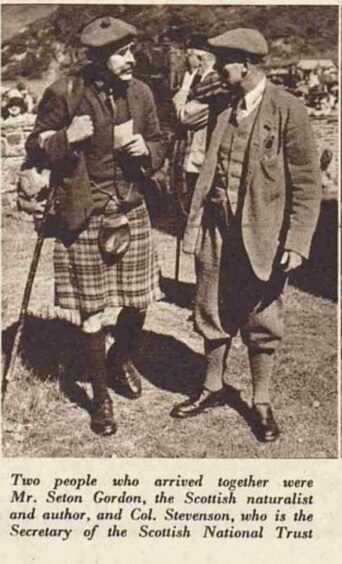
The P&J was there too with a ‘special correspondent’ who described the atmosphere as ‘almost a Braemar Games’.
There were 1500 clansmen and their families who ‘played up to the importance of the occasion,’ he reported.
‘Clan chieftains were there joining in the singing of Gaelic songs. This was more their day than that of the hundreds of visitors from England and overseas who seemed determined at least not to miss the event.
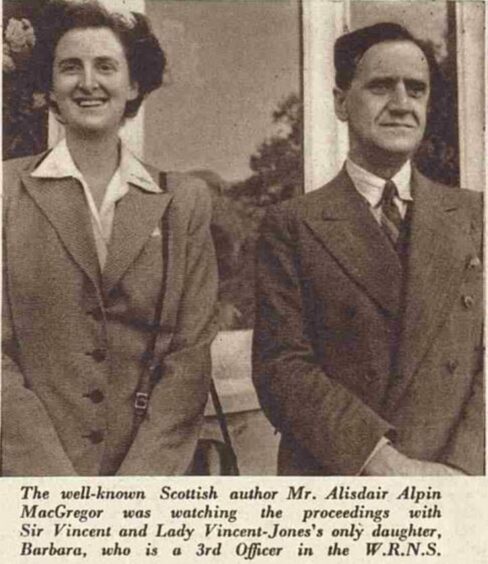
‘It was a field day for scores of American, Australian and British soldiers, celebrating the end of world war by commemorating a rising of two centuries ago.
‘Scots and English families, off the leash after six years war held picnic parties by the loch side.
Dull speeches
‘Many wandered away from the often dull speeches to get a broader view of the memorable Highland scene.
‘The ceremony was arranged by the National Trust for Scotland (which had been gifted the Glenfinnan memorial in 1938) and the speakers included Sir Donald Cameron of Lochiel, descendant of ‘The Gentle Lochiel’, Lord James Murray, the Marquess of Tullibardine and the Rev Malcolm MacLeod who spoke in Gaelic.’
‘Seditious’
There must have been prior negative mutterings about the commemoration, as Lochiel in his speech emphasised that the gathering was no seditious movement as had been suggested in some quarters.
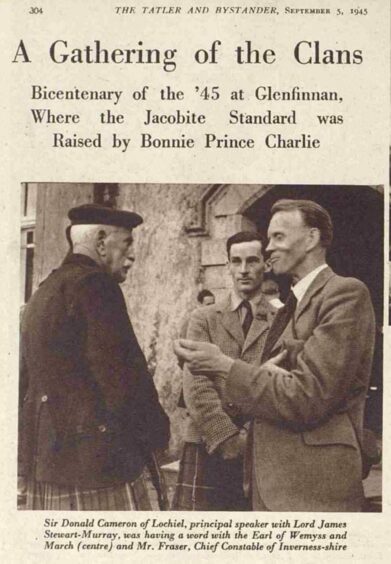
“Nowhere in the British Empire could one find more loyal subjects to King George VI than in the Highlands of Scotland,” he declared.
After outlining ‘the deathless story’ of Prince Charles Edward Stuart, Locheil said: “We shall never forget our Bonnie Prince Charlie.
“With all his faults, which we overlook, and in spite of the subsequent havoc and ruin which the rising brought upon the Highlands, we still cherish and love him this day.
“He has cast glamour on us all which will never fade away, and today, 200 years after the event, and with all out loyalty to our present King and Queen we still sing ‘Better lo’ed canna be, will ye no’ come back again.’
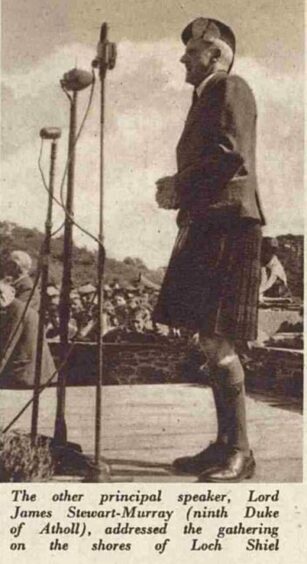
Letter from France
The crowd was read a letter from Pierre Masse, secretary of the association for the 19th Regiment of Brest.
“Two hundred years ago, 1744, our regiment under the command of Honore 111, Prince of Monaco stationed at Dunkirk was ordered sail for Scotland to support the Chevalier (Bonnie Prince Charlie).
“Unfortunately the ships were all driven back to the coast by storm and the regiment did not reach its aim.
“I think our association must share your gathering by sending you this short message of friendship, as we have not forgotten our links with Scotland, our soldiers of the old 19th fought at Waterloo against the Highlanders of Picton’s Division, they have also fought side by side at Alma and during the First War.
Auld Alliance links celebrated
“Besides we are Bretons and cannot forget the Auld Alliance between our two countries in 1441, marriage to Isabella of Scotland with Francois 1st Duke of Albany in 1442, the landing of Mary Queen of Scots and Roscoff in 1548; and finally the arrival of Charles Edward in 1746.
“Our faithfulness to those events in our common history gives us the pride possess a banner of St Andrew presented to us in 1937 by Lady E Moncrieffe, a token of friendship between our regiment and the Black Watch.
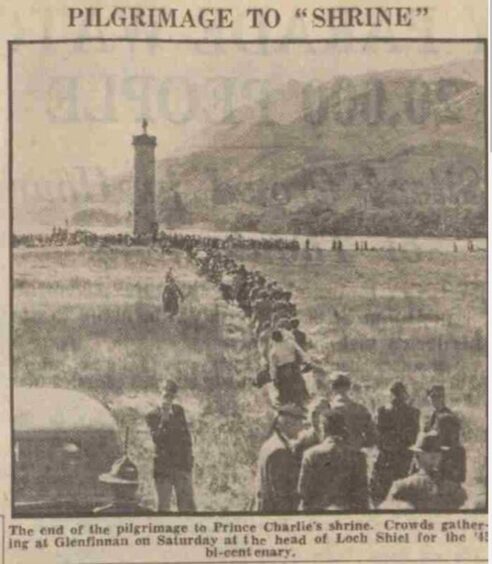
“I have preciously kept your old standard during the painful years of the German occupation and today on behalf of my comrades, mostly Celts of Brittany it is with great pleasure that I send you most sincere wishes for the success of your glorious gathering.”
Incursion by riders
The P&J correspondent reported that nobody tried to ‘debunk’ the ceremony.
“Nobody that is except Mr and Mrs Amhlaibh Macaindreis of Glen Uig.
“On Highland ponies, they galloped onto the field and sitting astride her horse, Mrs Macaindreis, (Wendy Wood, the Scottish writer) made brave last minute bid to address the dispersing crowds.
“She sang ‘Speed Bonnie Boat’ and then told them that Bonnie Prince Charlie himself would have fought for a Scottish Parliament.
“Raising her voice she declared: “There are people here today whose ancestors did a lot for Prince Charles but some of them are like dead potatoes, the best part of them is underground.”
History doesn’t record how that went down.
There was music and dancing that evening in Fort William Square.
“It was a grand finale to a great Highland event,” the P&J reporter concluded.
More like this:
New research reveals different positioning of Bonnie Prince Charlie’s Culloden army
Ten decades, ten objects: Popular Fort William Museum celebrates its first century
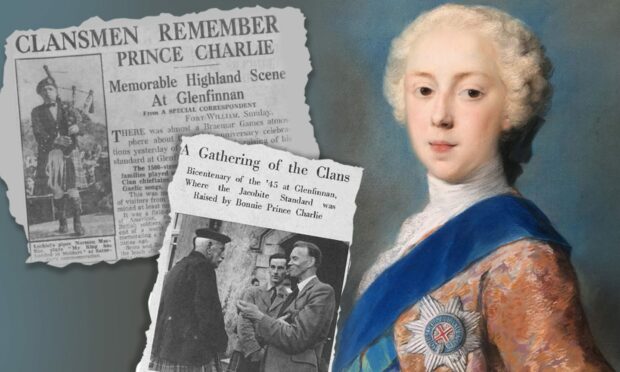
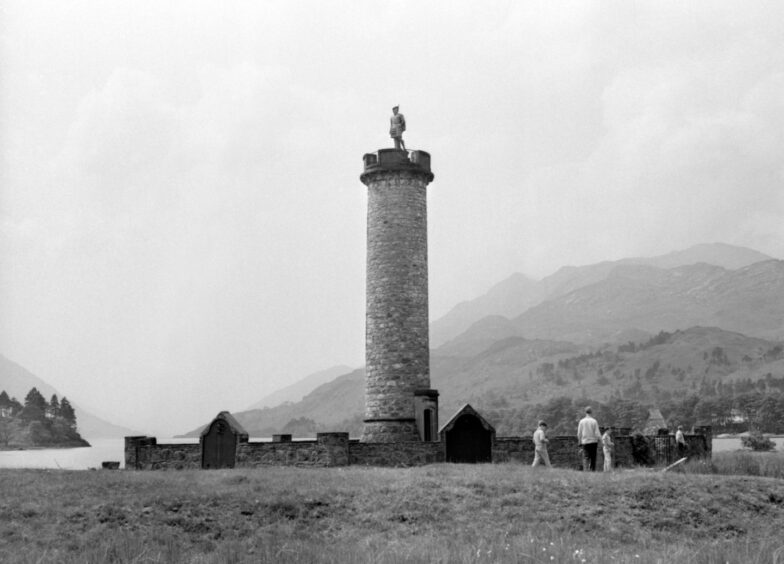
Conversation